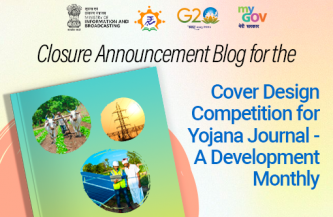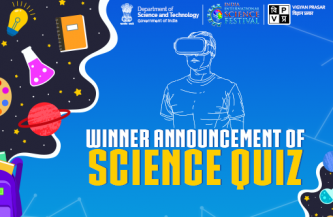PM’s 3 Days Visit to Europe – Part 1

Prime Minister Narendra Modi was on a 3-day European visit. During his visit to Germany, Denmark, and France, he met leaders and various entrepreneurs. The prime minister held bilateral talks with the Nordic nation’s leaders. He was greeted by the Indian diaspora living in these European nations. So, looking at the political, strategic, and economic significance of this visit, it was highly important and successful. Given India’s good relations with both Russia and Ukraine, and given the ongoing Ukraine-Russia conflict, Modi’s role in restoring stability and peace in the region is highly anticipated.India isn’t in favour of any one party as it has a neutral stand taking inspiration from our principle of Non-Alignment. India is a friend of both sides and holds a crucial global presence as a part of QUAD and as a special invitee to the G-7 grouping.
If we look at the importance of these visits, we can divide them into 3 broad categories: historical relations, bilateral agreements signed and their impact on the relations between India and these countries. With all these visits and multilateral meetings, the global perception regarding India is changing, and the world is recognising India’s power and importance in international trade and security. Prime Minister Modi was accorded a most effusive welcome in every country by the Indian diaspora.
Day 1. 2 May 2022 Germany: PM Modi landed in Berlin to meet the new Chancellor of Germany, Olaf Scholz. They finalize a deal of €10 billion German fund to support green projects in India by 2030. Since May 2000, India and Germany have a strategic partnership and it has been strengthened with launch of Inter-Governmental Consultations (IGC) and various bilateral meets.
Day 2. Denmark: PM Modi met with Danish Prime Minister Mette Frederiksen. They discussed India’s role in influencing Russian leader Putin to put the war to an end. While interacting with the Indian diaspora in Copenhagen, PM Modi said, “You should inspire at least five of your friends to visit India.” This is the work you all (‘Rashtradoot’) have to do”. PM also attended the Nordic Conference, which included Denmark, Sweden, Iceland, Finland, and Norway.agenda of the conference were related to green technologies, techniques of reforestation, and environmental restoration. PM Modi also talked about environmental problems and their negative impact on our planet. He emphasised the need to quit the consumption-oriented approach and the need of the hour is to promote “LIFE-Lifestyle for the environment”. He said that India’s role in environmental pollution is negligible but that India is still working hard to control global warming and climate change.
Day 3. France: India and France have had close relations for many decades. Both countries entered into a strategic partnership in 1998 in defence and security cooperation, space cooperation, and civil nuclear cooperation. India and France also have great economic partnerships and are increasingly working to strengthen the ties. During his visit to France, PM Modi held talks with President Emmanuel Macron. They discussed a number of bilateral issues, including defence, space, civil nuclear cooperation, and people-to-people relations, as well as regional and global issues. Both countries expressed grave concern over the ongoing conflict and humanitarian crisis in Ukraine. After his return from France, PM Modi tweeted that, his meeting with Emmanuel Macron was “brief but a very fruitful one”.
Significance:
This visit made it clear that it proves to be an important milestone in the efforts of the Modi government to create a new image of India on an international platform.
Why is India an influential player in global politics?
India is a significant strategic and third-largest trading partner for the European Union. In 2020, India and the European Union traded Rs 5,081 billion worth of goods. After the USA, India is the second-largest market in the European Union.
- The ever-changing global world dynamics and security issues have left countries in a haze and the solution lies in none other than the fact of building an effective foreign policy focused largely on global good.
The recent 3-day visit of Hon’ble PM, Narendra Modi to Germany, Denmark, and France reflects India’s vision of placing strategic importance on world peace, its economic ties, and reiterating the idea of a new India to the world.
On May 2, 2022, the PM first met the new German Chancellor, Olaf Scholz. The highlight of the meeting was the signing of the Joint Declaration of Intent (JDI) on Green and Sustainable Development Partnership between India and Germany. Germany also announced an investment of 10 billion euros and termed India as a ‘central partner.” Moreover, both nations jointly addressed a business roundtable to boost the industrial sector in the post-COVID recovery phase.
May 3, 4, marked the visit to the second destination, where an aura of long-term wider prospects was felt in key areas of Green Strategic Partnership (which focused on green hydrogen, renewable energy, and wastewater management), along with subsequent talks on animal husbandry, energy, and cultural exchange, which took place during the PM’s discussion with Danish counterpart, Mette Frederiksen.
A prospective Memorandum of Understanding between the Ministry of Jal Shakti and the Danish Environment Ministry was discussed as a means to expand their cooperative gesture and to launch new, innovative projects, including a Smart Laboratory on Clean River Water in Varanasi and a Centre of Excellence on Smart Water Resources Management. Narendra Modi also conveyed his idea of India as a potential partner and as an increasing marketplace for investors (since the number of unicorns has significantly increased over the years in India) while addressing the India- Denmark Business Forum.
The Prime Minister also attended the 2nd India Nordic Summit with the leaders of Denmark, Norway, Sweden, Finland, and Iceland. He invited them to invest in the blue economy, particularly India’s Sagarmala Project. Given that, other than the U.S., India is the only country with which Nordic countries have summit level meetings.
The third visit was with the French President, Emmanuel Macron. One-on-one and delegation level talks were held on myriad topics ranging from the Ukraine crisis, Indo- Pacific terrorism, food security issues, and the FARM initiative, in which India will play a key role. Coming largely against the backdrop of Russia’s invasion of Ukraine and the looming security crisis, Narendra Modi’s three-day visit has proved to be of substance and has subtly touched the target of moving away from Russia. India’s sustained economic growth and ever-increasing market size has made India one of the fastest growing economies in the world. PM, Narendra Modi’s visit to Europe leverages India as an active and woke neighbour working on many dimensions- gathering investors, focusing on clean energy, the health crisis, and global peace. All in all, the PM’s European visit has strengthened the spirit of cooperation with India’s European partners, simultaneously moulding India’s image as a prospective confidant for collaborative ties.
III. Prime Minister Narendra Modi’s visit to the three countries began on May 2, 2022. During this visit, he held a summit with Nordic countries. An interesting and challenging visit by the Prime Minister comes amidst the Russian-Ukraine war and economic stress all over the world. This is his first visit abroad this year.
He had a busy schedule in Germany on the first day. Prime Minister Modi is on a visit to Denmark on Tuesday. This visit is very important. The 2nd India-Nordic Summit with the Prime Ministers of Denmark, Iceland, Finland, Sweden, and Norway-2022, under the leadership of Prime Minister of India, Narendra Modi, will focus on topics such as economic reforms, research, technology, climate change, renewable energy. The Nordic countries are important partners for India in renewable energy, digitization and innovation. Apart from the US, India is the only country in which summit-level meetings of the Nordic countries are held. Mainly The Second India Nordic Summit in Copenhagen focused on key issues of international peace and security, the conflict in Ukraine, multilateral cooperation, climate change, the blue economy, innovation and digitalisation. The Nordic countries reiterated their support for India’s permanent membership of a reformed and expanded Security Council.
The international relations of India are continuously getting stronger and stronger due to the foreign visits of the prime minister. The Nordic summit will open unmatchable avenues. I hope the Indian legal community gets ready to yield the best out of it.
India-Germany
Prime Minister Narendra Modi met German Chancellor Olaf Scholz on Monday, and the two leaders discussed key areas of bilateral cooperation under the overall strategic partnership, as well as regional and global developments. PM Modi arrived in Berlin on Monday morning on the first leg of his three-nation European trip that will also take him to Denmark and France. Upon his arrival, the Prime Minister was received by Chancellor Scholz in a ceremonial welcome at the Federal Chancellery in Berlin, where he was also accorded the Guard of Honour. Thereafter, the two leaders met in a one-on-one format, followed by delegation-level talks.
As per the MEA statement, discussions between the two leaders covered key areas of bilateral cooperation under the overall strategic partnership as well as regional and global developments. In Perspective today, we will discuss with an eminent panel the significance of PM Modi’s visit to Germany, our strategic partnership with the European country, and how it has evolved over the years.
India – France Relations
Prime Minister Narendra Modi returned home on Thursday after concluding his three-nation European tour—to Germany, Denmark, and France. In what was his first visit abroad in 2022, the Prime Minister held a series of bilateral meetings to boost ties in a range of areas, including trade, energy, and green technology. We spoke about his visit to Germany earlier. Today we will focus on the last leg of the PM’s tour to France.
On his way back from the 2nd India-Nordic Summit in Copenhagen, the Prime Minister paid a visit to France, where he met French President Emmanuel Macron in one-on-one and delegation-level formats. The two leaders held discussions on the entire range of bilateral issues. They also took stock of the regional and global security outlook and discussed ways to work together to make the India- France Strategic Partnership a force for the global good.
In this edition of the program, we will analyse some of the key highlights from the Prime Minister’s visit to France: the India-France relations, and how this visit has added momentum to the India-France relations. Good relations germinate from good thoughts, and that is something India poses very well. India’s relationship with the world is getting more positive with each passing day, and that is partly because of the well-taught communication and dealing skills that India is doing right now. The situation of the Russia-Ukraine war is being handled very well by us and the visits of our Prime minister to several European nations highlight the importance that India is showing on Indo-European relations.
With Shakti, Varuna, Garun, and dessert knight exercises with France, India is also showing its additional intention to grow its business in France and the rest of the world. India is taking the right approach to take the nation to the world stage and strengthen the Indo-Pacific region of corporations. We are heading towards an Aatmanirbhar Bharat and for that, we need to have full cooperation with the world to be fully equipped in this scenario.
Indo-Euro Relations
Strengthening ties between countries is as important as it is in family members, and this is what India is aware of. India’s relationship with the world is getting more important today as structural change is occurring in a really great place. With the fast-changing world, India is attempting to modify and maintain its relationships with all; this is why India is not directly standing on one side of the bifurcated world. India’s visit to Europe signifies the nation’s intention to take ties as a priority for prosperity and development, which is really very essential today. India is also invited to the G7 summit, which shows the important position that the country is gaining today. The economic crisis, pandemic, and wars are tense the world order, and it’s the onus of the top nations’ leaders too to mitigate the situation rather than accusing one another like children. Fortunately, India is trying to play a great role in stabilising the shaky world, and we hope that the world also realises the importance of handshakes rather than missile tests.
- The Prime Minister, Narendra Modi’s 3-day, 3-nation tour was immediately interesting. He went to France to meet the newly re-elected President Emmanuel Macron. He was welcomed in Copenhagen by Danish counterpart Mette Frederiksen, and he also met with German Chancellor Olaf Scholz in Berlin.
The motive of this 3-day trip was to improve bilateral relations between India and Europe.
The view of India’s Ministry of External Affairs on PM Modi’s 3-day, 3-nation tour says that the trip was short but it was very productive. In a tweet, Arindam Bagchi, spokesperson, says that PM Modi’s trip advanced many things, like trade and investment ties, and also finalised a new green partnership, and also promoted collaboration for innovation and skill development. The most important thing was to strengthen the spirit of cooperation with Europeans.
Emmanuel Macron also tweeted about the meeting. He said that they talked about different present international problems as well as their strategic partnerships and also discussed food security problems. PM Modi discussed his meeting with Chancellor Scholz, stating that they had extensive communication on a variety of topics such as trade and economics, culture, and interpersonal relations.And it’s amazing that the two countries will work together in several areas, and, of course, this partnership will be very beneficial. The Second India- Nordic Summit:
At the invitation of the Danish PM, Mette Frederiksen, PM Modi travelled to Copenhagen from Germany. He also participated in the second India-Nordic summit. Nirmala Sitharaman, finance minister, and many senior union ministers were asked to accompany PM Modi to Germany for the IGC, which mandates direct talks between senior ministers from both sides on communication on certain topics.
Short Pause for Re – elected Macron:
PM Modi’s return journey from Paris has a brief stopover for his substantial discussion with the re-elected French President Emmanuel Macron. PM Modi’s visit to France will provide a good platform to carry forward high level goals between the two countries. Following extremely fruitful discussions, both countries have repeatedly brought up and agreed on the intentions of their strategic partnerships.
The Significance of PM Modi’s tour:
After landing in Berlin, PM Modi met with the German Chancellor, Olaf Scholz, and it was PM Modi’s first experience of meeting the newly appointed Chancellor, Olaf Scholz. PM Modi was greeted with a warm welcome by the Indian diaspora. PM Modi was sure that his visit would improve the friendship between the countries.
1) Indo-Pacific:
PM Modi’s tour to Berlin comes amid Germany’s efforts to intensify its engagement in the Indo-Pacific region amid China’s assurances. In January, Harsh Vardhan Shringla, foreign secretary, and Kay-Achim Schnabch, German navy chief, talked about maritime security problems in the context of greater engagement by Germany in the Indo Pacific.
2) Trade:
PM Modi’s tour also concentrates on trade relations with Germany. Germany is India’s biggest trading partner in Europe with a bilateral trade of over 21 billions and this was PM Modi’s fifth visit to Germany after becoming Prime Minister.
3) Strategic Partnerships:
India and Germany are attempting to rebuild post-COVID infrastructure and are relying on strategic partnerships to expand commercial ties. The well-established commercial ties between India and Germany form one of the pillars of our strategic partnership and also address a business roundtable with the goal of energising our industry-to-industry communication, which will build up post-COVID economic recovery in both countries.
4) The Diaspora Factor:
PM Modi said the Indian diaspora in Germany is an important anchor in India’s relations with Europe. Continental Europe is home to over one million people of Indian origin, and Germany has a significant proportion of this diaspora.
5) Ukraine:
While Germany is busy taking a strong stand against Russia over the war in Ukraine, India is maintaining a diplomatic balance. India is heavily dependent upon Russia for defence supplies and has given out balanced statements on the war in Ukraine.
[These are 4 different blogs collated as a single blog written by our MyGov Interns Aman Singh, Amisha, Chandan Kumar and Chandan Roy respectively.]





